Behind the Mic
Behind the Mic
Moody College of Communication is the destination for aspiring podcasters
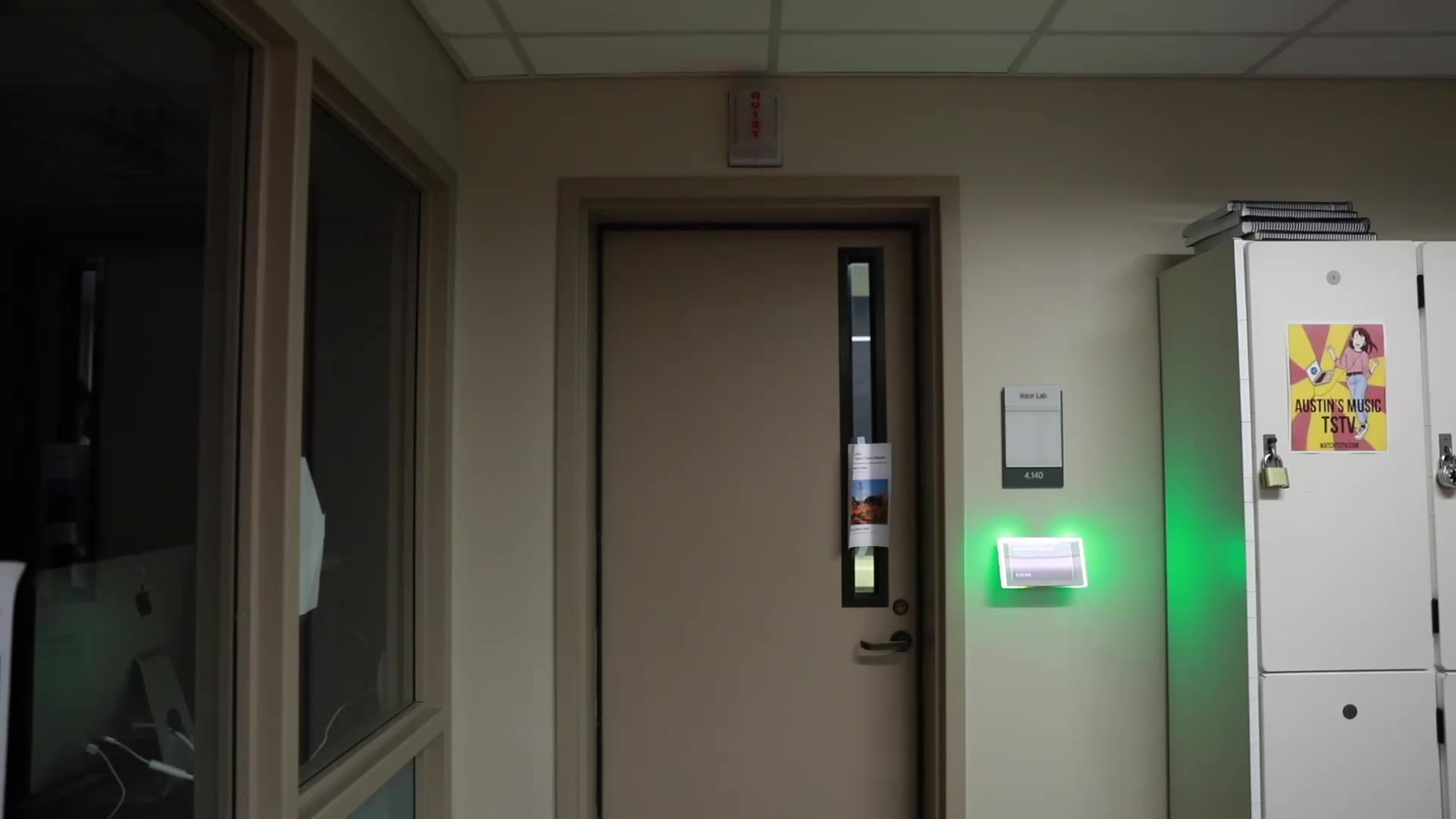
Read personal accounts of students working behind the scenes of The Drag Audio’s top podcasts and find out how Moody College is making sure even more students have opportunities in audio.
Jade Emerson didn’t know where to start. How do you tell the story of a political and environmental icon like Lady Bird Johnson, who not only married a future president but helped beautify the nation as we know it?
It was something that hit Emerson like a ton of bricks when she sat down to write the first scene in what would become a 12-episode long-form podcast about the former First Lady that was released by The Drag Audio, Moody College of Communication's student-run podcast production house, this summer.
“I wanted to do her justice,” Emerson said. “I didn’t know if what I had done in terms of research had been enough. I didn’t know if I knew her well enough yet to be jumping into this intimate part of writing about someone’s life.”
After reviewing 100 hours of personal interviews with Lady Bird stored at the LBJ Library, Emerson kept returning back to one story when she was a girl, sitting on the banks of Caddo Lake near her hometown of Karnack, Texas, drinking her first sips of beer. She wore loose fitting pants and socks pulled up to her knees. All her friends had already started wearing shorter socks. They’d pair up and go off places. And she wished they’d call her anything but Lady Bird.
“I realized, as I was writing that scene, and I was writing about the cypress trees and this feeling of loneliness and what she was seeing and what she was feeling and what she was hearing. And I realized, I know her. I know who this person is,” Emerson said. “And now I get to chart the rest of her life through these scripts.”
“I wanted to do her justice,” Emerson said. “I didn’t know if what I had done in terms of research had been enough. I didn’t know if I knew her well enough yet to be jumping into this intimate part of writing about someone’s life.”
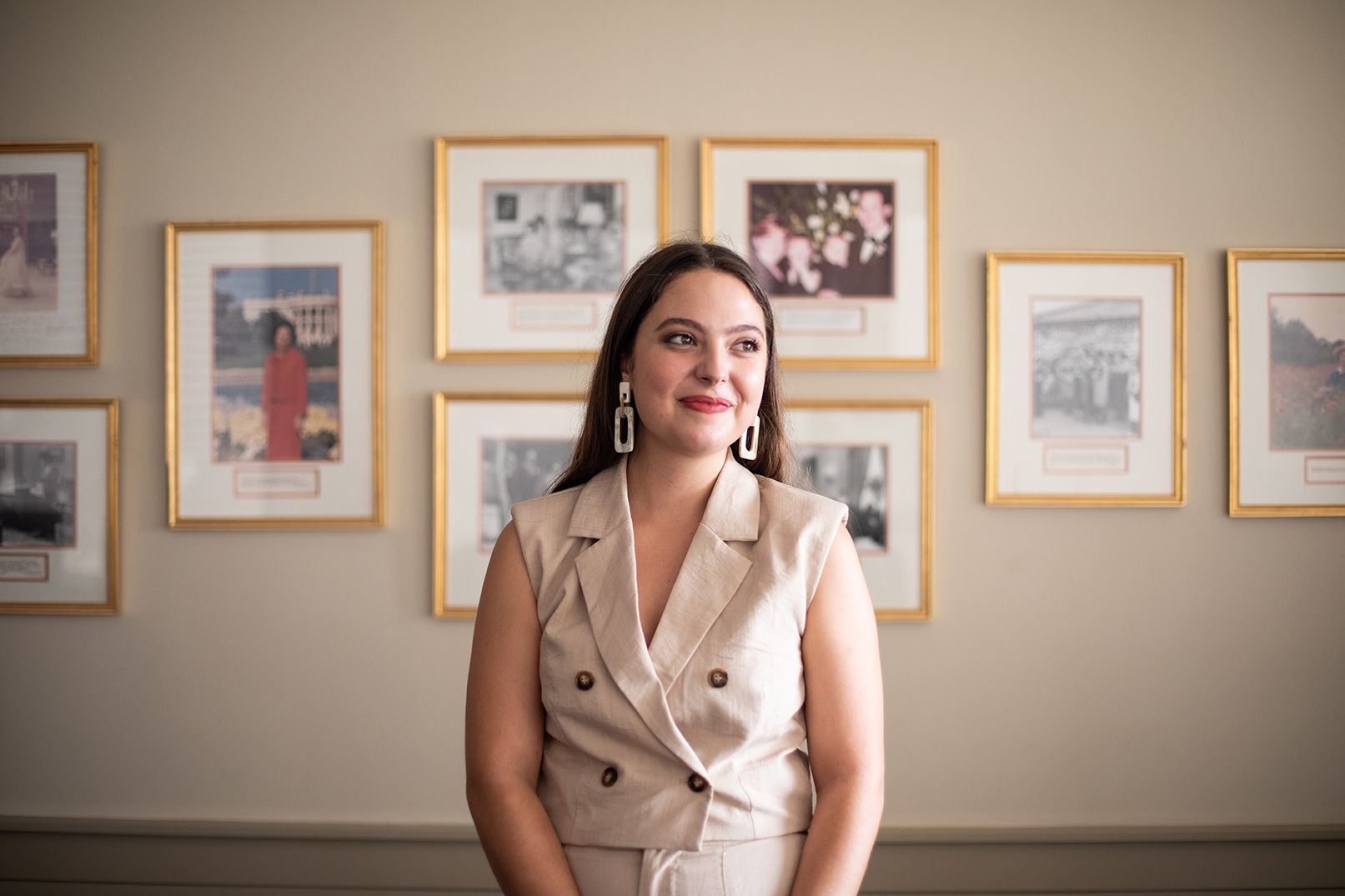
Two years, 94,413 words and 12 hours, 25 minutes and 47 seconds of recording later, “Lady Bird” was released into the world with a flurry of press appearances.
When Emerson talks about Lady Bird, her eyes still well up with tears. “This project has meant so much to me, and it really has been my college experience,” she said. “I feel so lucky to have been the person to do this and to help tell Lady Bird’s story.”
Emerson graduated in May with her degree in journalism. She knows hers is not an experience a lot of students get.
“I came in here not knowing at all what I wanted to do or what kind of journalism I wanted to do, and I ended up finding this thing that I love so much,” she said. “I don’t think there’s anything like it anywhere else for me to be a 22-year-old recent college graduate and to have had the experiences I had in terms of reporting and researching and writing and hosting and then to have this amazing project to show for it.”
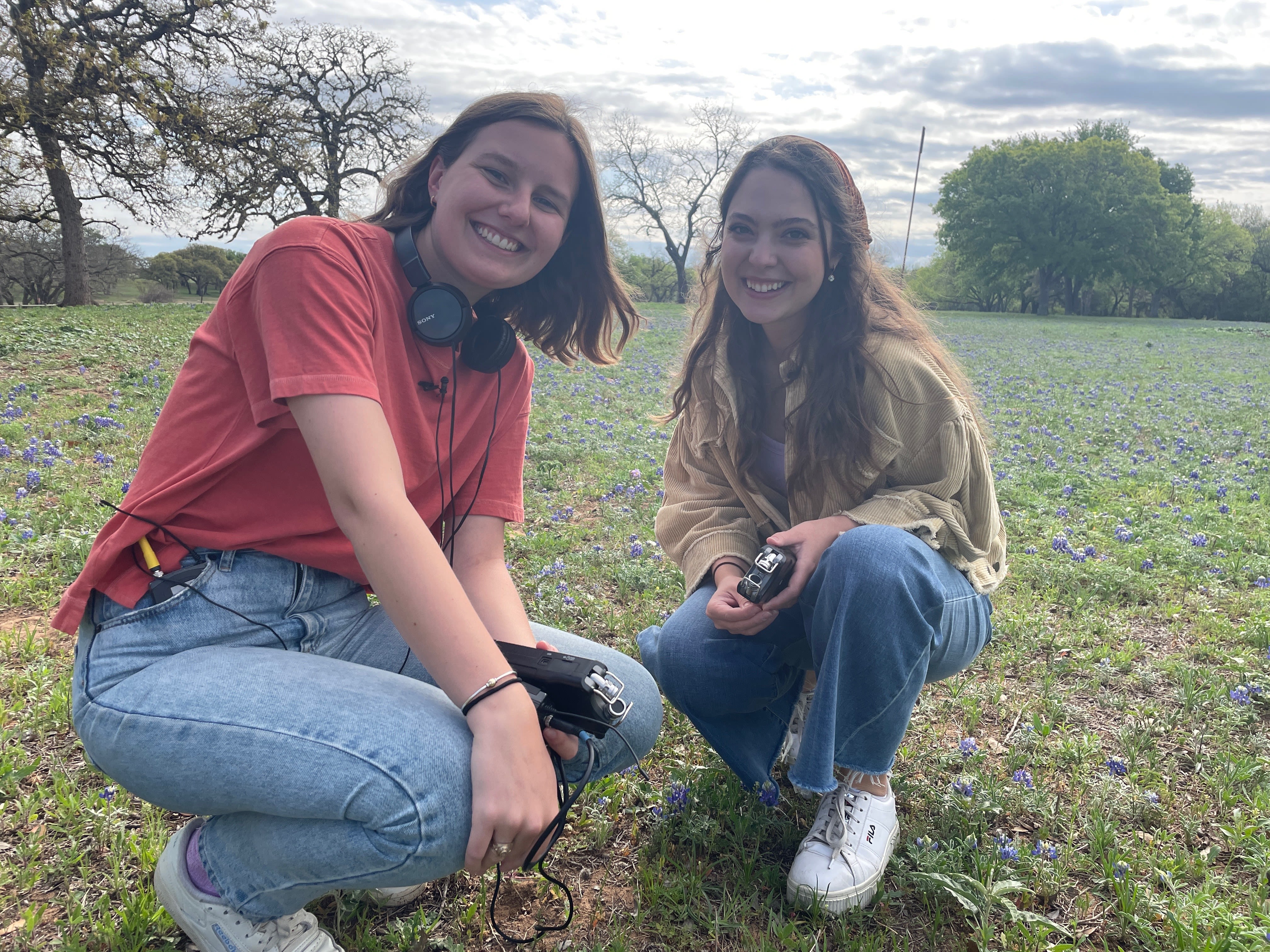
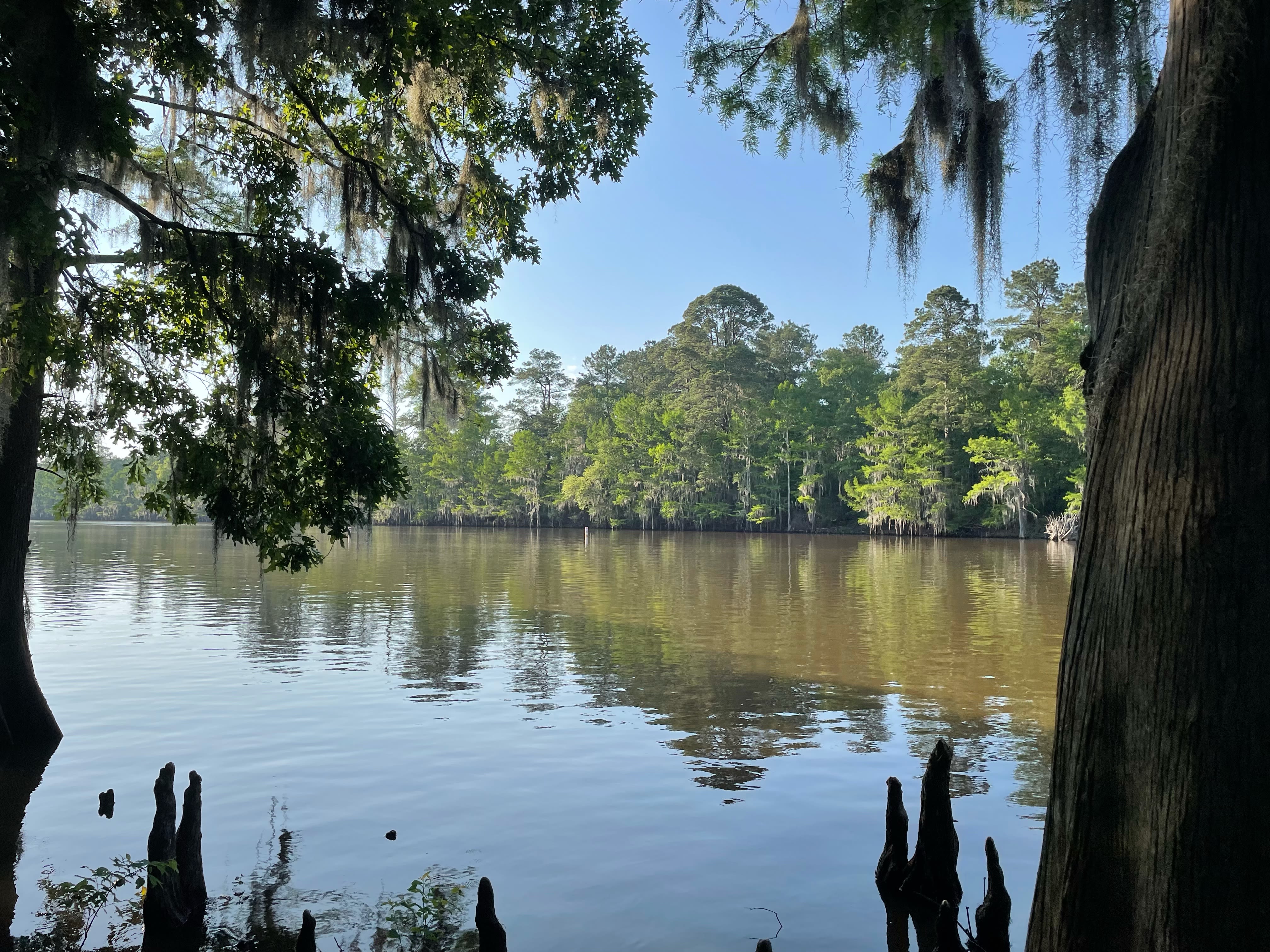
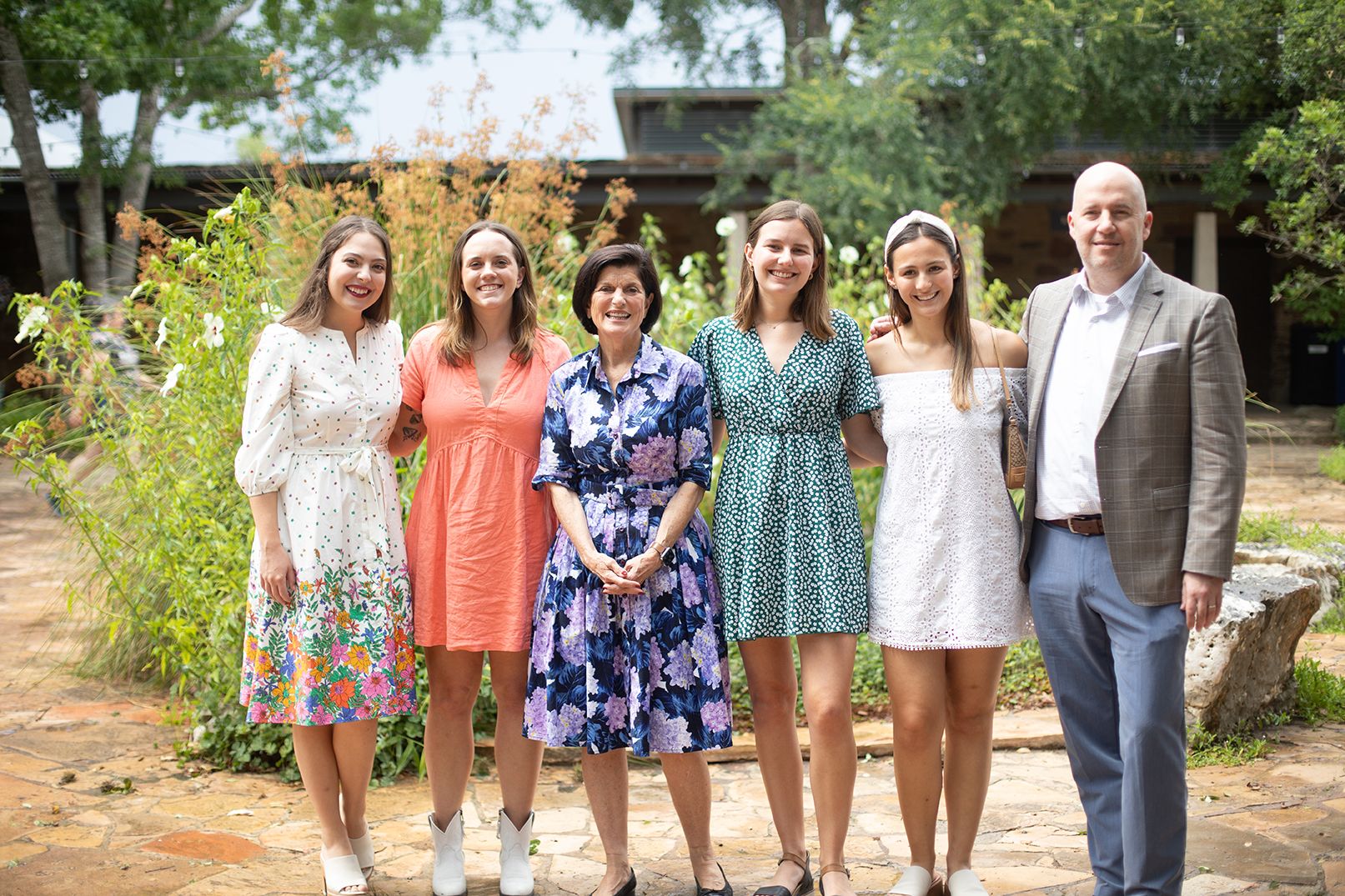

Carly Rose (left) and Jade Emerson (right) on a reporting trip for "Lady Bird." Photo Courtesy of Jade Emerson
Carly Rose (left) and Jade Emerson (right) on a reporting trip for "Lady Bird." Photo Courtesy of Jade Emerson

The banks of Caddo Lake near Karnack, TX where Lady Bird grew up. Photo Courtesy of Jade Emerson
The banks of Caddo Lake near Karnack, TX where Lady Bird grew up. Photo Courtesy of Jade Emerson

The "Lady Bird" podcast team with Luci Baines Johnson (third from the left), daughter of the first lady at The Wildflower Center. Photo by Lizzie Chen
The "Lady Bird" podcast team with Luci Baines Johnson (third from the left), daughter of the first lady at The Wildflower Center. Photo by Lizzie Chen
Since 2019, The Drag has provided UT Austin students with a one-of-a-kind opportunity to write, edit, research and host long-form audio podcasts covering a range of topics — from climate change to 20-year-old murders to the struggle for press freedoms in Latin America.
“There are classes, of course, at many universities on podcasting. There are people making podcasts for publication. But to actually mimic a podcast production house and make high-end, quality professional podcasts is definitely unique, and I don’t think anyone else is doing it,” said The Drag’s founder, Robert Quigley, an associate professor in the School of Journalism and Media and Director Innovation and Entrepreneurship for Moody College. “If you are interested in podcasting, Moody is the place to go. There’s not going to be another experience like this anywhere else.”
The Drag couldn’t have made bigger waves when it first launched five years ago. Its inaugural podcast “The Orange Tree,” about the 2005 murder of Jennifer Cave, rose to the top 25 in Apple Podcasts. At the time, The Drag just had five staffers. Today, it’s grown to nearly 25 with more expansion on the way. They have 12 podcasts under their belt and three more set to be released this year. Their “Darkness” series, which includes “The Orange Tree” and three other seasons, has a 4.8 rating on Apple Podcasts. Drag staffers have gotten to interview people in prison, survivors of mass shootings and even the daughter of a president.
“It is such a unique opportunity that I honestly don’t think you can get anywhere else,” said recent journalism grad Carly Rose, who helped produce “Lady Bird” and even hosted a couple bonus episodes. “You can try to start a podcast at another college, but you can’t produce something like ‘The Orange Tree.’”
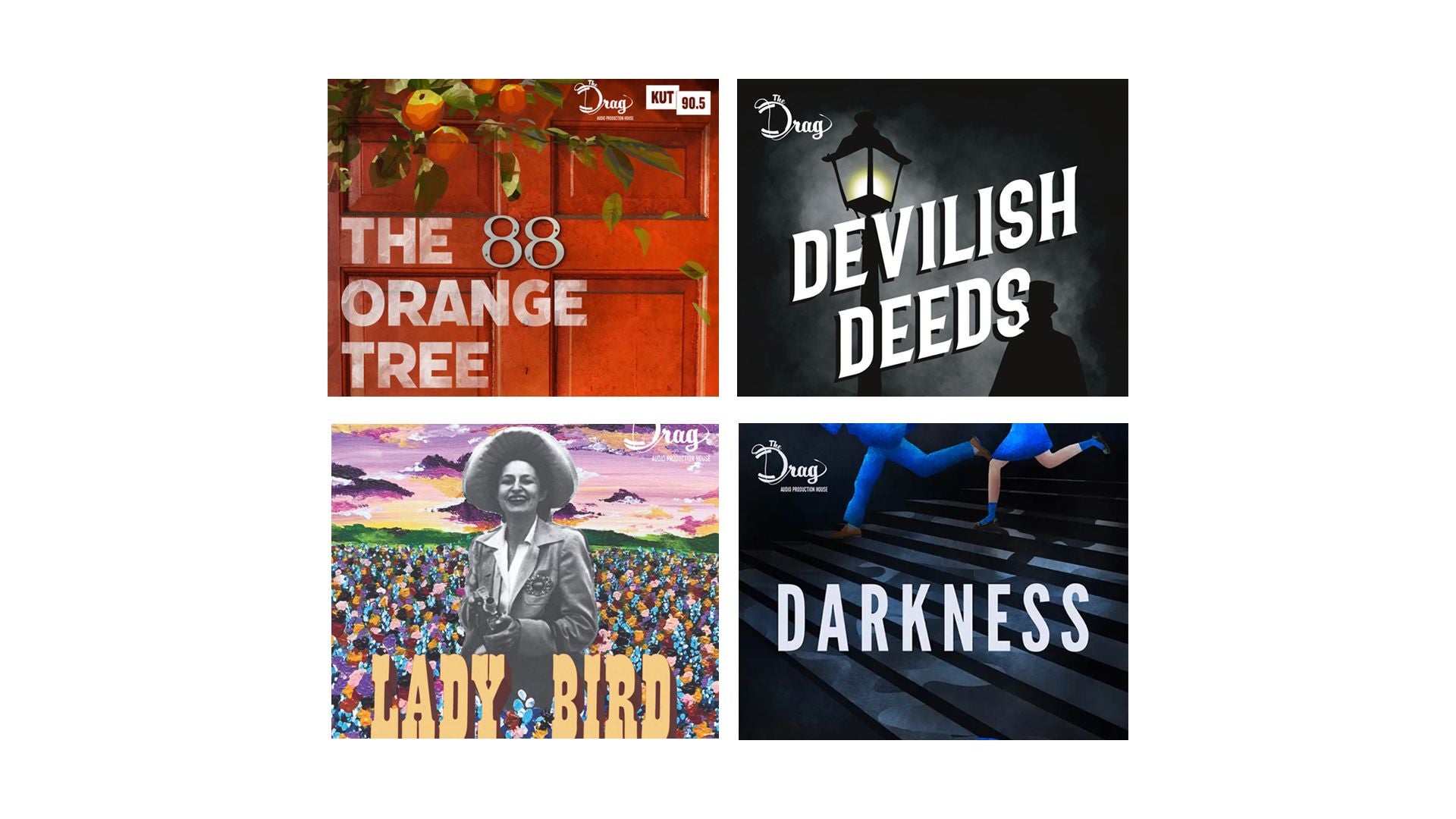
In addition to the growth of The Drag, Moody College has also increased the number of classes it offers in audio journalism and podcasting. The college now has four audio classes, including audio storytelling, podcast production, true crime podcasts and a capstone course in podcasting. This past May, Moody College also introduced a one-month-long travel podcasting class. Katey Psencik Outka, a lecturer that teaches the podcasting production class and recently took over as managing director of The Drag, said all of these classes are typically waitlisted.
“I have to fight students off in my classes and in The Drag,” she said. “I wish I could teach them all or hire them all. What’s been really cool in the past few years is to see incoming freshman or transfer students say I came to Moody because they want to work at The Drag.”
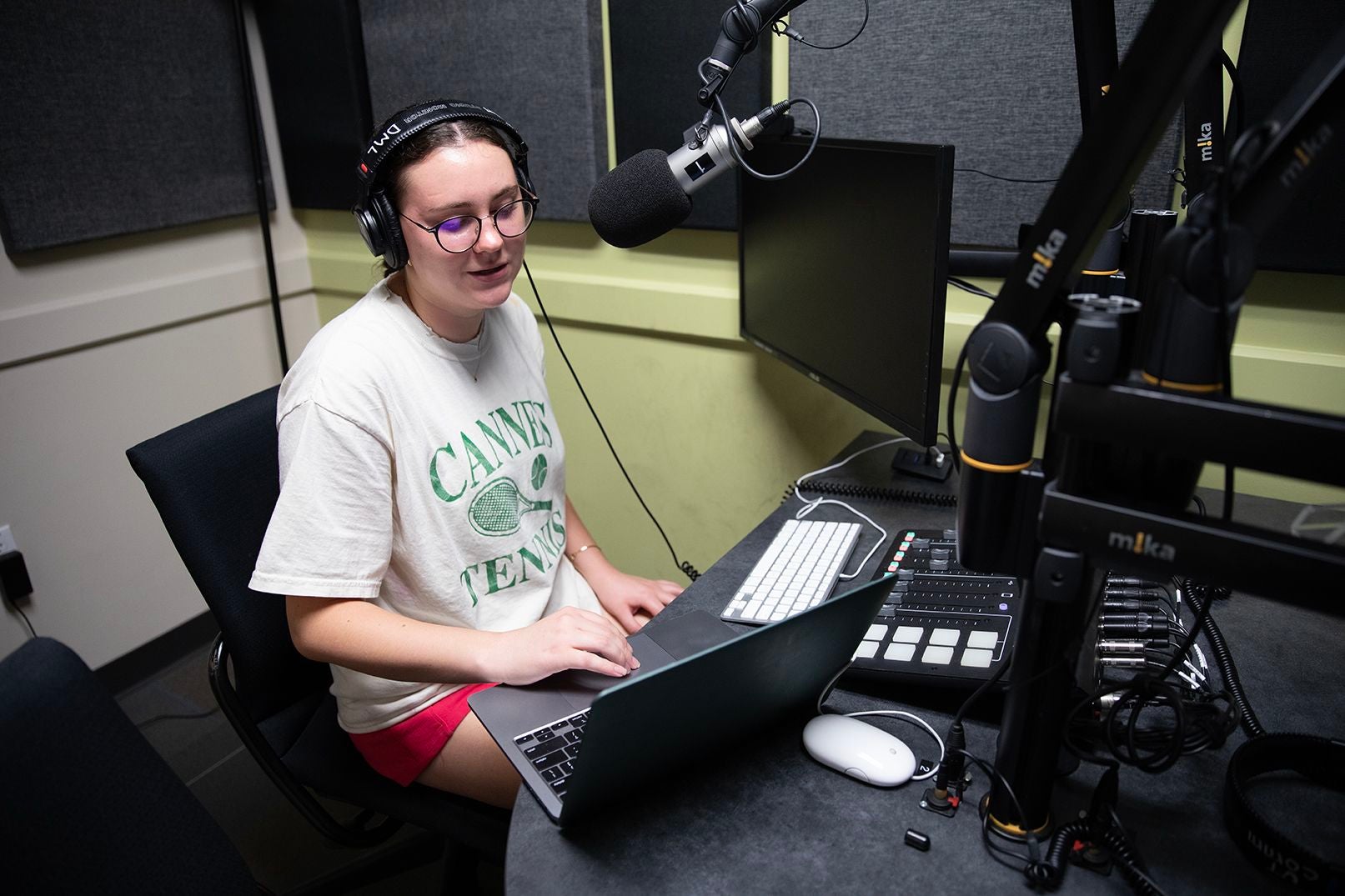
Students in the podcast production course have the opportunity to create their own audio stories.
Students in the podcast production course have the opportunity to create their own audio stories.
Quigley said students don’t have to be interested in careers in audio to get something from the courses. “Not everybody is going to want to do podcasting or even work in audio,” he said. “However, the skills you learn when you make a long-form documentary of any kind, whether it’s a podcast or a video, translates to so many different things. We’re talking about really in-depth writing, really in-depth research, really hard reporting, a lot of work on capturing sound correctly and making sure the storytelling is really coherent and interesting and compelling.”
Both Quigley and Outka — and all the students involved in The Drag — tout the benefits of audio journalism, citing several reasons why it’s such an important medium today. It’s passive, so people can listen when they drive or do the laundry. It’s innovative, allowing journalists to be creative in new and different ways. And it’s growing, which makes it an outlier in a media landscape that’s struggling to survive.
But perhaps the most powerful aspect, they say, is the intimacy of audio and the undeniable power of listening to sources tell their own stories and the nuances in what they say and how they speak.
“I love the sound of people’s voices. I think there is so much about them you can understand not just about what they say but how they’re saying it,” Emerson said. “Their accents and the richness and the depth and when their voice breaks, when they go quiet versus loud. There is so much storytelling in that.”
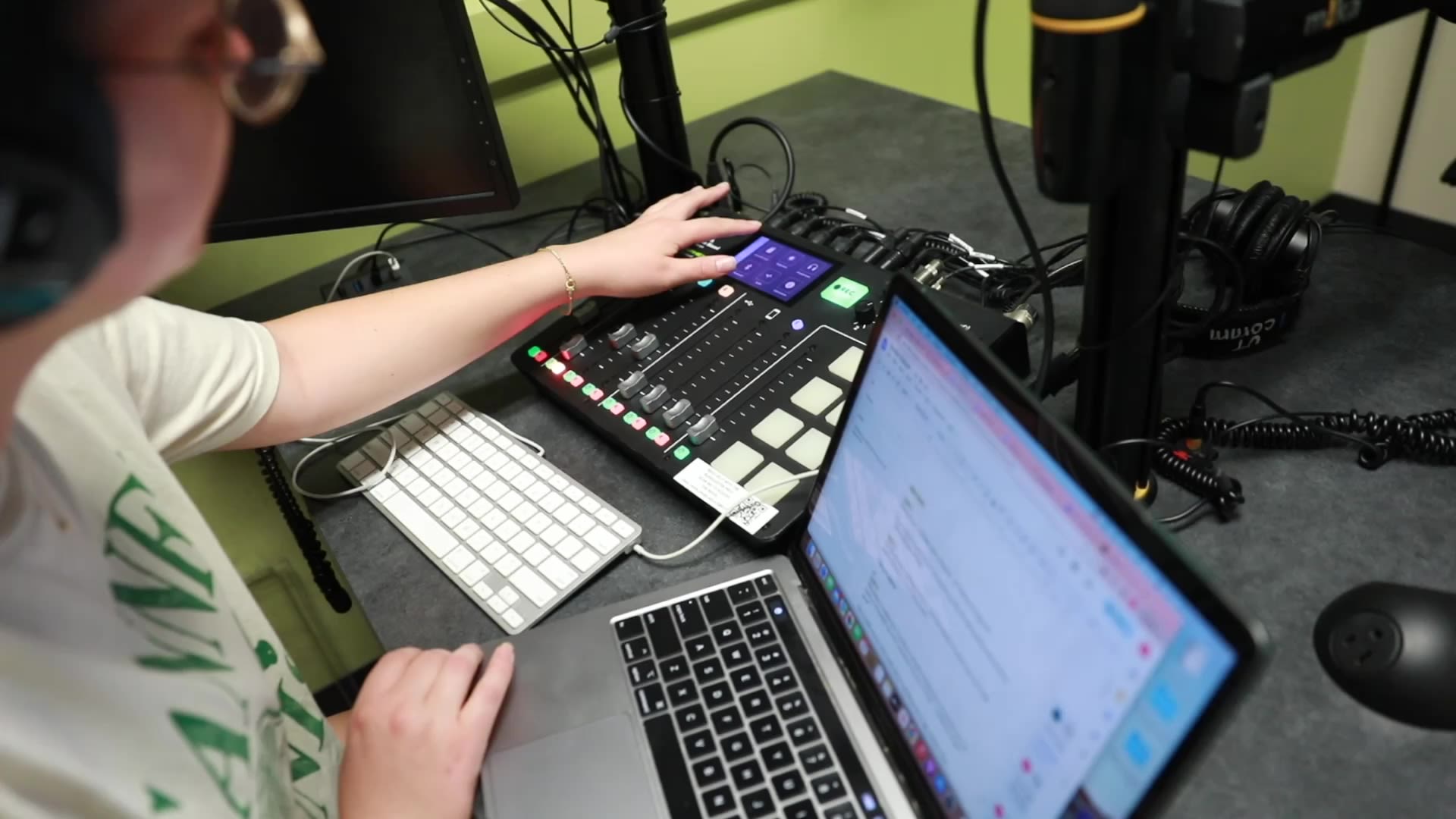
Recent journalism grad Jackie Ibarra, who hosted the third season of “Darkness,” remembers feeling that kind of connection when working on one of her first audio stories for The Daily Texan, UT’s award-winning student newspaper. It was the height of the pandemic, so Ibarra was forced to get creative with her stories and her sources, so she interviewed her dad about his journey with boxing and what it was like when he quit.
“It was a story I’d heard 100s of times, but when I put the mic to him and listened, I could hear a lot of the sadness and the regret he had,” Ibarra said. “Hearing the pain in his voice when he talked about having a dream cut short. I was only able to pull off the story because you can hear that in his voice.”
It was not long after that Ibarra decided she wanted to work for The Drag. She was doing social media for the journalism school and would periodically pop her head into Quigley’s office, secretly hoping to get hired, she said. One day, they had a pitch meeting for the new season of “Darkness” and were sketching out their ideas on a white board.
Quigley asked if she wanted to host it.
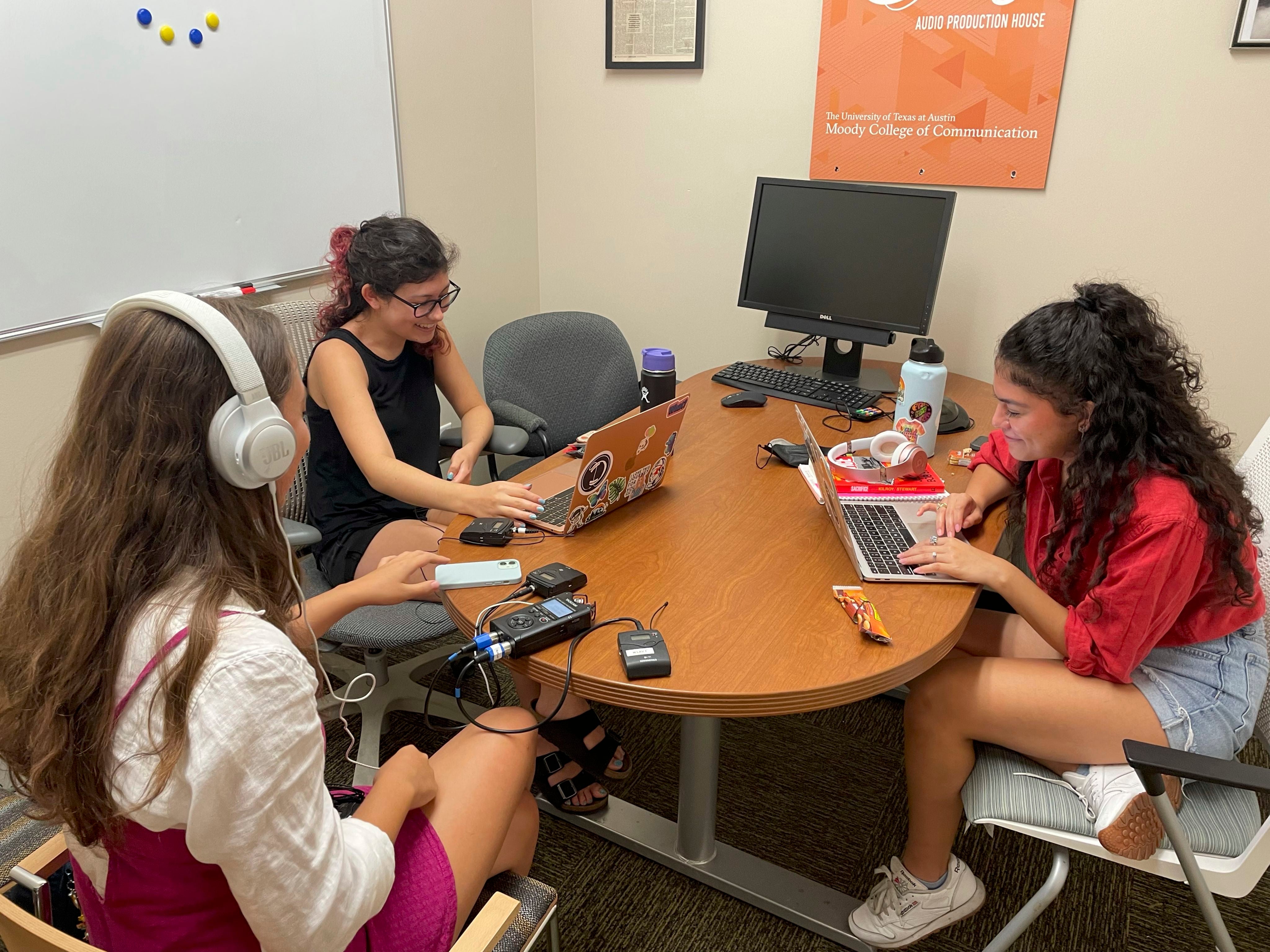
Jackie Ibarra (right) was the host of the third season of "Darkness."
Jackie Ibarra (right) was the host of the third season of "Darkness."
The third season of “Darkness” looks at the murder of UT student Mark Kilroy while on a spring break trip to Mexico. Ibarra said she read every book related to the case, about Brownsville, the city outside Matamoras where the murder took place, and about the satanic cult that was involved in the killing. She talked to experts, watched movies and interviewed a priest in Brownsville who had worked closely with Kilroy’s family during the investigation.
Ibarra said the team stayed long hours at The Drag’s office, littering the walls with sticky notes, piecing the story together.
“I got to make these big decisions I probably wouldn’t have been able to make until later on in my career,” Ibarra said. “In those moments I felt like truly I wasn’t a student, it felt like I was a professional trying to get this story done well.”
Outka said she makes sure the students who work at The Drag are equal partners. They operate like a newsroom, working hand in hand with her in the full production of the podcast. This kind of experience makes them extremely attractive candidates for audio jobs when they graduate.
Today, Ibarra is working at Texas Monthly and helped to produce their newest crime podcast, Stephenville, about the 1987 murder of Susan Woods. She attended script meetings, cut tape and helped build some of the rough cuts. You can hear her name at the credits at the end of each of the episodes.
“Coming in with experience from The Drag has helped me in Texas Monthly, going from one true crime podcast to the next,” Ibarra said. “I think having that production background really helped. I didn’t go into it feeling as scared. I feel like I was ready to do the work they needed me to do, and I think it’s because I was handling all that work as a student.”
“My goal at The Drag and through teaching is to make this the place to come for audio and not even a question that you would go anywhere else,” she said. “There are other schools that teach audio and podcasting well, but for me, if you want the full experience, this is the place to get it.”
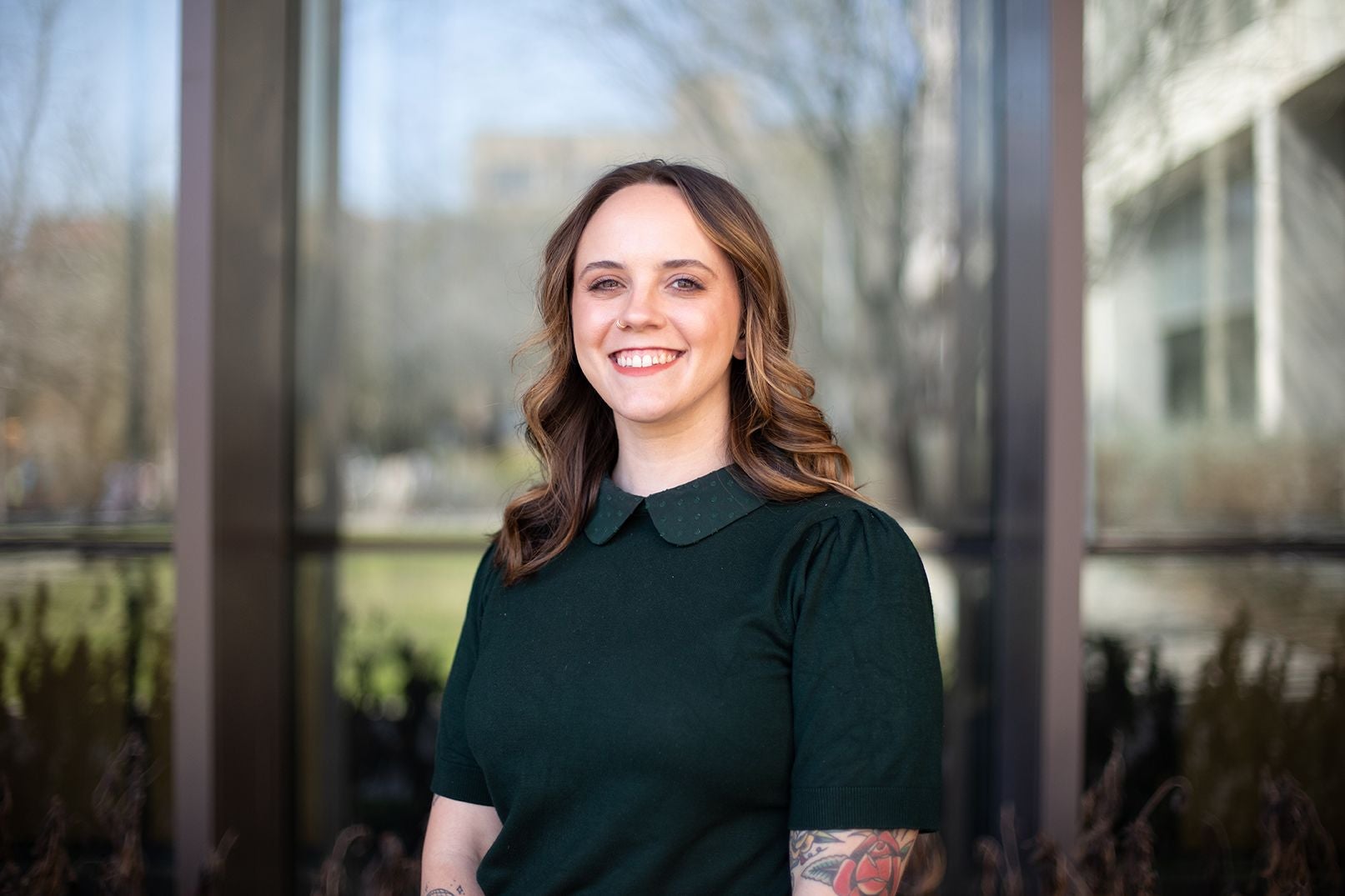
On Aug. 1, The Drag released its fourth season of “Darkness,” about the UT Tower shooting in 1966. Journalism senior Sara Kinney hosts and interviewed several of the survivors, including one of the first students shot, Claire Wilson, who was 8 months pregnant at the time and lost her son. Kinney said she had to separate from the work sometimes for just an hour at a time while making the podcast because of the sensitive nature.
“It’s a lot of work, and you are dealing with very hard topics,” she said. “There are good parts to it, people who have recovered. I think the most fulfilling part is that there are people who are glad that I am doing this story and that this is being told again.”
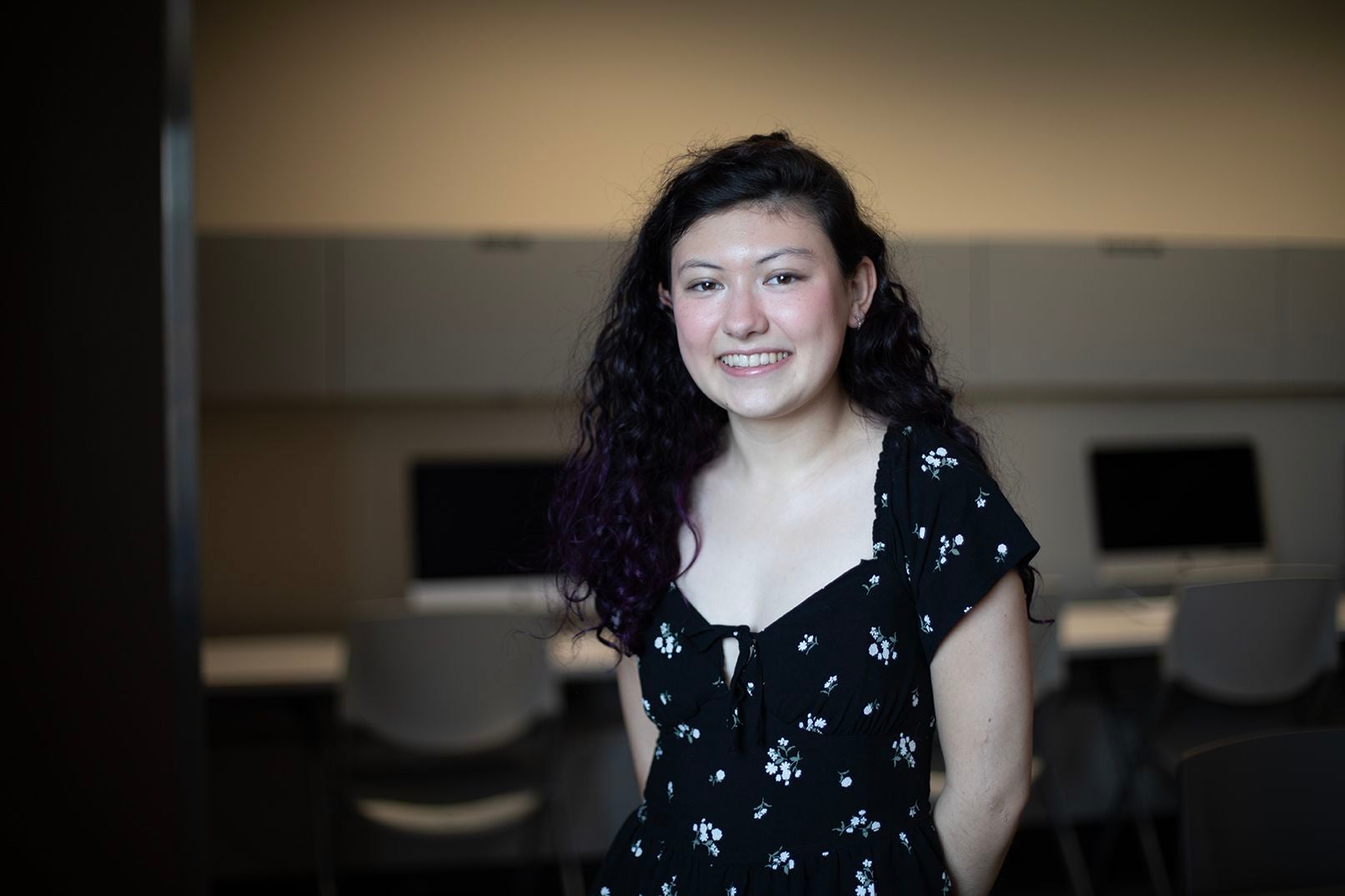
Sara Kinney is the host of the newest season of "Darkness."
Sara Kinney is the host of the newest season of "Darkness."
As Outka takes the reins from Quigley, she is thinking long and hard about the future of The Drag and making sure more students can get involved. They expect soon they’ll be able to hire student freelancers who can edit or fact-check a single episode of a series. They are also helping departments across campus develop their own podcasts, whether that means assisting with strategy and marketing or creating the actual content.
“Hopefully we’ll be able to have a bigger staff instead of a small exclusive group,” Outka said.
The Drag is also planning to introduce new kinds of podcasts, rather than simply long-form audio journalism, which is extremely labor intensive, Outka says. They have some more traditional, conversational podcasts in the works, as well as podcasts with standalone episodes, including one that will explore criminal justice and political issues in Texas. Some topics to expect: the creation of the Amber Alert system and what it’s like on Death Row. Outka said they are always trying to diversify their portfolio and make sure they are growing and evolving.
“My goal at The Drag and through teaching is to make this the place to come for audio and not even a question that you would go anywhere else,” she said. “There are other schools that teach audio and podcasting well, but for me, if you want the full experience, this is the place to get it.”

